70 posts
Latest Posts by tatterdemalion-sprite - Page 2

This is lovely advice.
What makes me love this even more is seeing this stay the same no matter what year you met it in, what series or medium you started with, or how old you were.
It feels like it is all made for all of us, and we get to love the whole franchise, and the whole fandom. And then it's impossible not to love the little Trekkie roots in ourselves.
i think star trek will stay with me forever.
it has injected me with a permanent joy and whimsy and helped me unlearn shame/cringe culture. most importantly, it makes me see the good in humanity.
star trek has affected me in ways i never knew media could affect me. it keeps me optimistic about humanity’s future, and inspires me to do what is right no matter what. star trek makes me unashamed to be myself, however nerdy or silly I may be.
star trek is so important to me and i have a feeling it always will be.
Y’know an awful lot of Terry Pratchett’s books are concerned with how powerful women are when they get angry and how important anger is as a driving force to defend what is right and to tackle injustice.
A lot of his most interesting and most deeply moral characters are angry ones. Granny Weatherwax, Sam Vimes, Tiffany Aching. All are to a large extent driven to do good by anger.
And that honestly means a lot to me.








believe the Doctor’s words
Dunno how to put it properly into words but lately I find myself thinking more about that particular innocence of fairy tales, for lack of better word. Where a traveller in the middle of a field comes across an old woman with a scythe who is very clearly Death, but he treats her as any other auntie from the village. Or meeting a strange green-skinned man by the lake and sharing your loaf of bread with him when he asks because even though he's clearly not human, your mother's last words before you left home were to be kind to everyone. Where the old man in the forest rewards you for your help with nothing but a dove feather, and when you accept even such a seemingly useless reward with gratitude, on your way home you learn that it's turned to solid gold. Where supernatural beings never harm a person directly and every action against humans is a test of character, and every supernatural punishment is the result of a person bringing on their own demise through their own actions they could have avoided had they changed their ways. Where the hero wins for no other reason than that they were a good person. I don't have the braincells to describe this better right now but I wish modern fairy tales did this more instead of trying to be fantasy action movies.
Bilbo really is such a high-quality little person, and he amazes me again and again. Gollum was ready to go back on the deal they made, that he'd show Bilbo the way out of the mountain if he won the riddle game; he was plotting to put the ring on and slay poor Bilbo instead. Bilbo, when he was in an advantageous position to slay Gollum, would do no such thing.
When he escaped, he luckily heard voices nearby and was relieved to find that everyone had escaped too. The dwarves were arguing with Gandalf, because the latter wanted them all to go back in and find Bilbo, and one of the dwarves actually said, "If we have got to go back now into those abominable tunnels to look for him, then drat him, I say." (Its probably best that we don't know which one said it.) But right before this, Bilbo had been unsure about whether they were all still inside and he had just made up his mind to go back in and rescue them - this little hobbit, all alone.
Bilbo is loyal, brave and true; he has a deep sense of honor and won't waver from it, come what may. This is what being a hero is all about.

One of the best writing advice I have gotten in all the months I have been writing is "if you can't go anywhere from a sentence, the problem isn't in you, it's in the last sentence." and I'm mad because it works so well and barely anyone talks about it. If you're stuck at a line, go back. Backspace those last two lines and write it from another angle or take it to some other route. You're stuck because you thought up to that exact sentence and nothing after that. Well, delete that sentence, make your brain think because the dead end is gone. It has worked wonders for me for so long it's unreal
Writing?
Hello!! I started writing again recently, I've been learning some things about how stories go together!! WORDS ARE APPEARING ON THE PAGE and it is like magic. I am in a great mood! I hope you are all having a lovely day out there! Writers, the words haven't abandoned you forever!!
If anyone out there is writing, and wants to put our heads together to giggle about starting to write, reach out and say hi!!

“Use your gifts and your talents to greatest possible effect while you can. Spread joy wherever possible. Laugh at jokes. Tell jokes. Make puns and bugger the embuggerances. Read books. Read my books. You might like them. You might find something else you like even more than them. Look for these things in life.
Question authority. Champion good causes. Speak out against injustice. Do not tolerate bullies or bigots or racists or anti-intellectuals or the narrow-minded. Use your education to challenge them. Broaden their perspectives. Make the world you interface with a happier place.
These are your choices. Choices you have been fortunate to have been given, so don’t waste them while you have them. Don’t look back in years to come and wish you had grasped a fleeting opportunity. Grasp it now with both hands, Live. Strive. Love.”
from A Little Advice for Life taken from ‘Terry Pratchett: from birth to death, a writer.’
—Sir Terry Pratchett; April 28, 1948 – March 12, 2015
One of the greatest compliments I've ever received is that I resemble Sam Vimes.
Mind how you go.
I'm just gonna keep this for someday...
this is so mean but sometimes i see published writing and suddenly no longer feel insecure about my own writing ability. like well okay that got published so im guessing i dont have much to worry about
Into the Spider-Verse Brainrot - Jeff knows its Miles
Listen, I don't even care if this is an original thought. You're telling me, Jefferson can recognize Miles' stickers from his car. You're telling me Jefferson Davis can recognize Miles' art despite there being a million other stickers and pieces of art up around Brooklyn.
...and then Miles-as-Spiderman shows up, in a suit HE PAINTED, and the FIRST scenes where Jefferson sees Miles-as-Spiderman IN THE NEW SUIT are also the first scenes where Jefferson is suddenly on Spiderman's side.
Uh huh. The man knows it's Miles.
Into the Spider-Verse Brainrot - Jeff knows its Miles
Listen, I don't even care if this is an original thought. You're telling me, Jefferson can recognize Miles' stickers from his car. You're telling me Jefferson Davis can recognize Miles' art despite there being a million other stickers and pieces of art up around Brooklyn.
...and then Miles-as-Spiderman shows up, in a suit HE PAINTED, and the FIRST scenes where Jefferson sees Miles-as-Spiderman IN THE NEW SUIT are also the first scenes where Jefferson is suddenly on Spiderman's side.
Uh huh. The man knows it's Miles.
Writing about a child rapist did not make Vladimir Nabokov a child rapist.
Writing about an authoritarian theocracy did not make Margaret Atwood an authoritarian theocrat.
Writing about adultery did not make Leo Tolstoy an adulterer.
Writing about a ghost did not make Toni Morrison a ghost.
Writing about a murderer did not make Fyodor Dostoevsky a murderer.
Writing about a teenage addict did not make Isabel Allende a teenage addict.
Writing about dragons and ice zombies did not make George R.R. Martin either of those things.
Writing about rich heiresses, socially awkward bachelors, and cougar widows did not make Jane Austen any of those things.
Writing about people who can control earthquakes did not make N.K. Jemisin able to control earthquakes.
Writing about your favorite characters and/or ships in situations that you choose does not make you a bad person.
It’s a shame that in this day and age these things need to be said.

Tidying the desktop* and ran across this just sitting there. Might as well post it.
*I had no choice. There was no more space for icons. :)
make bad art or you will always feel bad about your art. Make bad art until you find joy in the crooked lines and the off colours. Make bad art because art is about expression and artwork is never ugly because it was made by someone who has lived a life no one else will ever live. Make bad art and find love through ugly. Make bad art so you make art at all. Make bad art.
One of the things that’s really struck me while rereading the Lord of the Rings–knowing much more about Tolkien than I did the last time I read it–is how individual a story it is.
We tend to think of it as a genre story now, I think–because it’s so good, and so unprecedented, that Tolkien accidentally inspired a whole new fantasy culture, which is kind of hilarious. Wanting to “write like Tolkien,” I think, is generally seen as “writing an Epic Fantasy Universe with invented races and geography and history and languages, world-saving quests and dragons and kings.” But… But…
Here’s the thing. I don’t think those elements are at all what make The Hobbit and The Lord of the Rings so good. Because I’m realizing, as I did not realize when I was a kid, that Tolkien didn’t use those elements because they’re somehow inherently better than other things. He used them purely because they were what he liked and what he knew.
The Shire exists because he was an Englishman who partially grew up in, and loved, the British countryside, and Hobbits are born out of his very English, very traditionalist values. Tom Bombadil was one of his kids’ toys that he had already invented stories about and then incorporated into Middle-Earth. He wrote about elves and dwarves because he knew elves and dwarves from the old literature/mythology that he’d made his career. The Rohirrim are an expression of the ancient cultures he studied. There are a half-dozen invented languages in Middle-Earth because he was a linguist. The themes of war and loss and corruption were important to him, and were things he knew intimately, because of the point in history during which he lived; and all the morality of the stories, the grace and humility and hope-in-despair, was an expression of his Catholic faith.
J. R. R. Tolkien created an incredible, beautiful, unparalleled world not specifically by writing about elves and dwarves and linguistics, but by embracing all of his strengths and loves and all the things he best understood, and writing about them with all of his skill and talent. The fact that those things happened to be elves and dwarves and linguistics is what makes Middle-Earth Middle-Earth; but it is not what makes Middle-Earth good.
What makes it good is that every element that went into it was an element J. R. R. Tolkien knew and loved and understood. He brought it out of his scholarship and hobbies and life experience and ideals, and he wrote the story no one else could have written… And did it so well that other people have been trying to write it ever since.
So… I think, if we really want to write like Tolkien (as I do), we shouldn’t specifically be trying to write like linguists, or historical experts, or veterans, or or or… We should try to write like people who’ve gathered all their favorite and most important things together, and are playing with the stuff those things are made of just for the joy of it. We need to write like ourselves.
“Fairy tale does not deny the existence of sorrow and failure: the possibility of these is necessary to the joy of deliverance. It denies (in the face of much evidence, if you will) universal final defeat…giving a fleeting glimpse of Joy; Joy beyond the walls of the world, poignant as grief.” ― J.R.R. Tolkien.
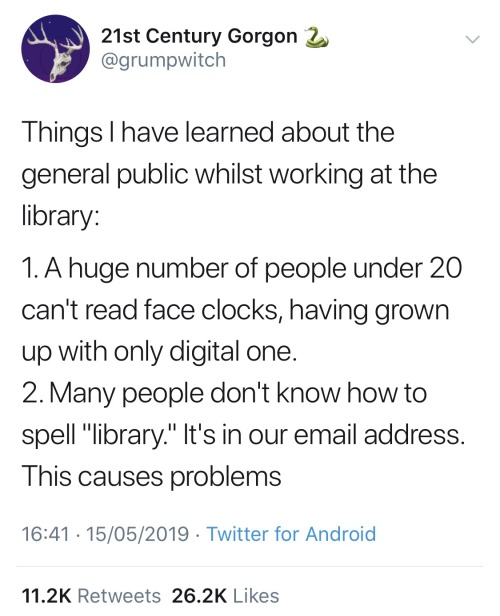
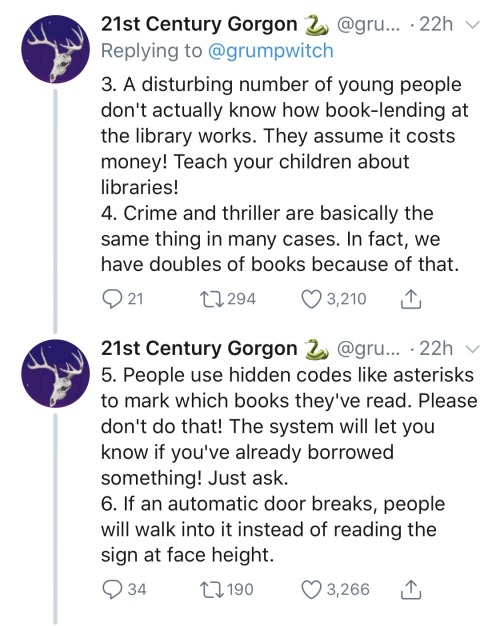
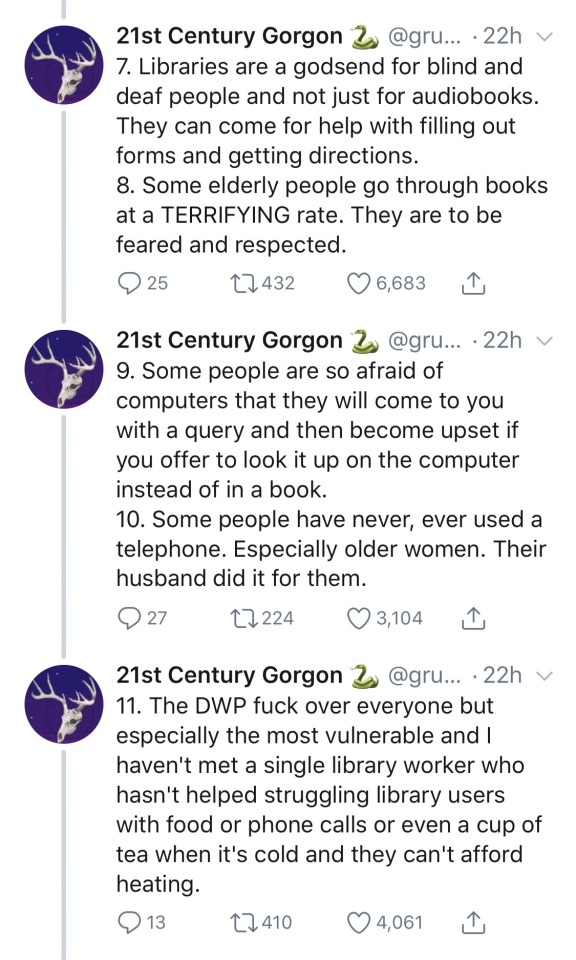

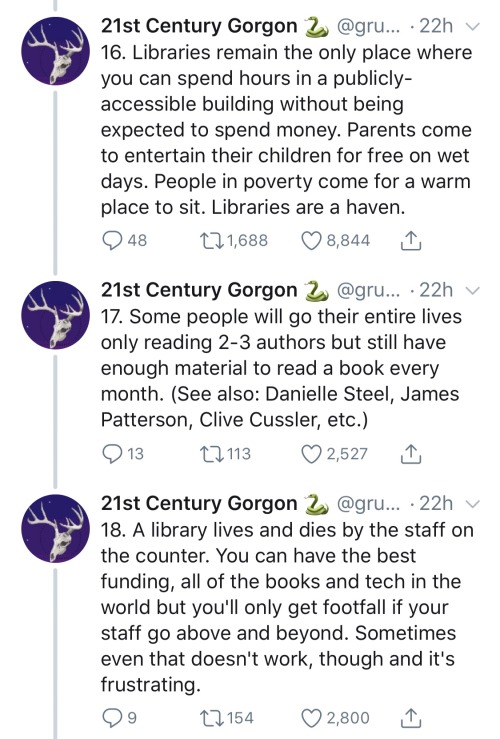
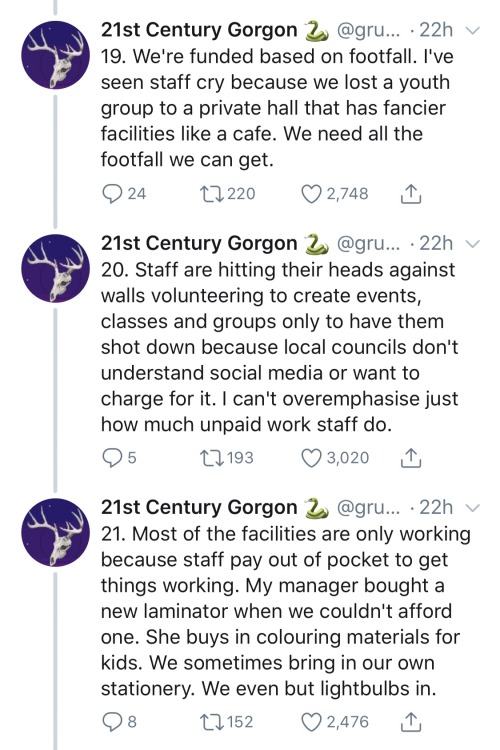
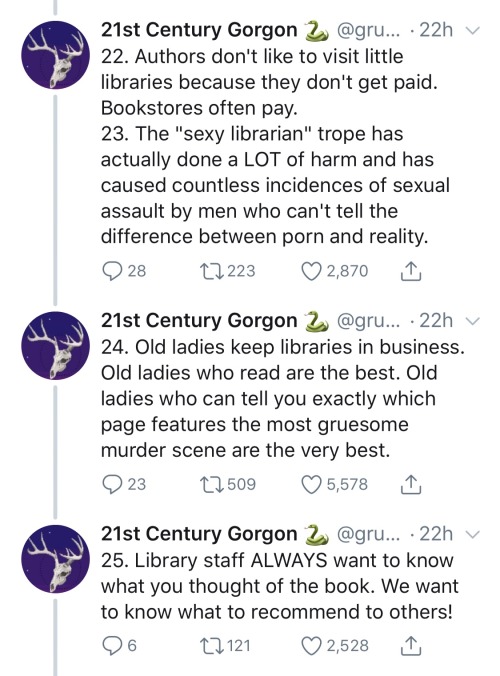

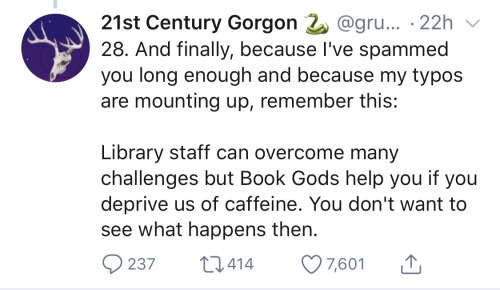
sometimes the best fanfics are written by middle aged adults with years of writing experience who simply know how to craft a good story. but also sometimes the best fanfics are written by a sixteen year old girl with something deeply wrong with her
U say to urself "i dont need notches, ill know how to orient the pieces when sewing bc i made the pattern" this is the devil speaking. Put notches in ur pattern and cut them into ur fabric. Youll be glad for it
life's too short to write for an imaginary critic that you fear will hate what you wrote
HERE I'M RIGHT HERE
All this hype for interview with a vampire whare are my Those Who Hunt the Night girlies and guylies and theydies

In another life, I think I would have really liked just having tea parties and telling stories with you <3
Has anybody else noticed that it seems that nobody tells children fairytales anymore? It seems that they only read them books or have them watch movies; oral storytelling appears to have vanished. Perhaps it’s just in my area, but it has quite literally been years since my friends, family, and I have met a child who has even referenced a fairytale character that didn’t appear in a Disney movie.

James Baldwin.
Spock's World Inspired Holiday Card circa 1992
December 1992. Spock's World was among my favorite novels. I had just turned 19 years old that month. In keeping with the tradition of making holiday cards, that year I drew artwork inspired by a scene in Spock's World, the Star Trek novel by Diane Duane.
No computer. No printer. This was 1992. I drew it in pencil and darkened it with ink. The message was all hand lettered. My dad made copies of the artwork at his office. Each copy was colored by hand with colored pencils and crayons.
The image centers on the IDIC symbol, Infinite Diversity in Infinite Combination, a concept central to Vulcan philosophy. Diane Duane wrote the most beautiful passage in Spock's World that simply explained the meaning of IDIC. I copied the passage for the message inside the card. The IDIC symbol was surrounded by animals, plants, and other organisms representing the biodiversity of Earth.
The passage from Spock's World was from a scene where Surak was in the desert and saw the giant sandworm-like creature, referred to as the Underlier (called A'kweth or Tcha'besheh). Both beings paused and beheld one another, the Underlier and the Vulcan, in the vast desert under the light of T'Khut (called The Watcher), Vulcan's sister planet.
"How delightful to be so different from something. No need to understand them, particularly; that might come with time and would be an added delight. But it was enough to accept their difference, to celebrate just that without anything added. Creation, in itself, was joy, the difference was joy, the celebration of it was joy."

Front of card. Star Trek inspired greeting card artwork. Based on the novel Spock's World. Image features the Vulcan IDIC symbol and cartoon drawings of animals representing diversity. Created in 1992.

Inside of card. Star Trek inspired greeting card artwork. Based on the novel Spock's World. Image features a quotation from the novel representing diversity and the IDIC philosophy. Created in 1992.

Front and back of card. Star Trek inspired greeting card artwork. Based on the novel Spock's World. Image features the Vulcan IDIC symbol and cartoon drawings of animals representing diversity. Created in 1992. (Copyright Myers Cards 1992.)
The passage in the novel continued:
"There was nothing that could stand against that joy: sooner or later it would triumph. All evil, all death, was a tiny, fretting, posturing thing that knew its own defeat was coming, and it might rage and destroy as it liked. It was doomed. Celebration would win, was winning, had won now. Everything was one moment, and the moment was nothing but triumph and joy."
This resonated with my 18/19 year old self. This still resonates with me today. Oh, my heart! I cry for joy! Such beautiful ideas and words to live by!
Regretfully, I didn't credit the author on the card at the time. I assumed friends and family wouldn't care. It was yet another weird, cheap, homemade holiday card from their weirdo sister / niece / daughter / student / friend.
I hope you enjoy the amateur artwork and Diane Duane's message. Enjoy the diversity and differences. Embrace and embody IDIC.
Thank you, @dduane.
Peace and long life,
Amy
Roles for the batkids
The fact is, Batman might be the team leader, but he's not always around, and I firmly believe that every group of siblings is going to work out their own dynamic. Without further ado, the roles of the batkids among themselves:
Dick: keeps them together
Jason: keeps them motivated
Tim: tries to fix everyone
Damian: pushes them
Stephanie: keeps them honest
Cass: keeps them kind
Duke: steadies them
Terry Pratchett about fantasy ❤

Terry Pratchett interview in The Onion, 1995 (x)
O: You’re quite a writer. You’ve a gift for language, you’re a deft hand at plotting, and your books seem to have an enormous amount of attention to detail put into them. You’re so good you could write anything. Why write fantasy?
Terry: I had a decent lunch, and I’m feeling quite amiable. That’s why you’re still alive. I think you’d have to explain to me why you’ve asked that question.
O: It’s a rather ghettoized genre.
Terry: This is true. I cannot speak for the US, where I merely sort of sell okay. But in the UK I think every book— I think I’ve done twenty in the series— since the fourth book, every one has been one the top ten national bestsellers, either as hardcover or paperback, and quite often as both. Twelve or thirteen have been number one. I’ve done six juveniles, all of those have nevertheless crossed over to the adult bestseller list. On one occasion I had the adult best seller, the paperback best-seller in a different title, and a third book on the juvenile bestseller list. Now tell me again that this is a ghettoized genre.
O: It’s certainly regarded as less than serious fiction.
Terry: (Sighs) Without a shadow of a doubt, the first fiction ever recounted was fantasy. Guys sitting around the campfire— Was it you who wrote the review? I thought I recognized it— Guys sitting around the campfire telling each other stories about the gods who made lightning, and stuff like that. They did not tell one another literary stories. They did not complain about difficulties of male menopause while being a junior lecturer on some midwestern college campus.
Fantasy is without a shadow of a doubt the ur-literature, the spring from which all other literature has flown. Up to a few hundred years ago no one would have disagreed with this, because most stories were, in some sense, fantasy. Back in the middle ages, people wouldn’t have thought twice about bringing in Death as a character who would have a role to play in the story. Echoes of this can be seen in Pilgrim’s Progress, for example, which hark back to a much earlier type of storytelling. The epic of Gilgamesh is one of the earliest works of literature, and by the standard we would apply now— a big muscular guys with swords and certain godlike connections— That’s fantasy. The national literature of Finland, the Kalevala. Beowulf in England. I cannot pronounce Bahaghvad-Gita but the Indian one, you know what I mean. The national literature, the one that underpins everything else, is by the standards that we apply now, a work of fantasy.
Now I don’t know what you’d consider the national literature of America, but if the words Moby Dick are inching their way towards this conversation, whatever else it was, it was also a work of fantasy. Fantasy is kind of a plasma in which other things can be carried. I don’t think this is a ghetto. This is, fantasy is, almost a sea in which other genres swim. Now it may be that there has developed in the last couple of hundred years a subset of fantasy which merely uses a different icongraphy, and that is, if you like, the serious literature, the Booker Prize contender. Fantasy can be serious literature. Fantasy has often been serious literature. You have to fairly dense to think that Gulliver’s Travels is only a story about a guy having a real fun time among big people and little people and horses and stuff like that. What the book was about was something else. Fantasy can carry quite a serious burden, and so can humor. So what you’re saying is, strip away the trolls and the dwarves and things and put everyone into modern dress, get them to agonize a bit, mention Virginia Woolf a few times, and there! Hey! I’ve got a serious novel. But you don’t actually have to do that.
(Pauses) That was a bloody good answer, though I say it myself.
Hello! I just wanted to write to thank you.
One of my favorite lines I've ever read is “Jim was already familiar with the incessant activity of that cool, curious mind as it tirelessly hunted answers. But now he saw where the activity came from - Spock’s utter certainty that there was no higher purpose for his life than to burn it away in search of truth, and to give that truth away when he found it. More, Jim saw what fueled and underlay that certainty: a profound vulnerability paired with a great, unreasonable joy”. That, combined with the YW series (which I recently reread), is very good for my soul.
You and your work are truly an inspiration to me! That Wounded Sky quote resonated with me for the theme that joy and curiosity really can underpin an entire, happy, successful life. Young Wizards has so much of the same - books and libraries are magic, but so is nature, and space, and manmade machines, and whales and sharks. Your stories strike a balance I can't always put into words - that curiosity and joy can be self-sustaining. They are not dependent on a single field, a single datum, a single discovery. They can be a lens and a philosophy and they can fit in your pocket for everyday. Curiosity as a mindset, and an exercise in loving and engaging with the world; joy as a result of realizing how many exciting things there are to love and be curious about.
On a parallel note, I am fascinated by how you seem to blend fantasy and sci fi - your Star Trek feels loving and magical, and your fantasy feels grounded and tangible. I am in awe of how many things you've been a part of creating, because it gives me hope that I, too, might avoid having to pick a narrow niche. But in the meantime, I am so grateful to be able to escape into your books, because I fall in love with them again every time, and then I come back and fall back in love with life.
I’m glad to hear it! Thanks for letting me know. ☺️
Also: generally, I think niches are best left to statues. Create what works for you and makes you happy. Life’s too short to waste doing otherwise.
Want to learn something new in 2022??
Absolute beginner adult ballet series (fabulous beginning teacher)
40 piano lessons for beginners (some of the best explanations for piano I’ve ever seen)
Excellent basic crochet video series
Basic knitting (probably the best how to knit video out there)
Pre-Free Figure Skate Levels A-D guides and practice activities (each video builds up with exercises to the actual moves!)
How to draw character faces video (very funny, surprisingly instructive?)
Another drawing character faces video
Literally my favorite art pose hack
Tutorial of how to make a whole ass Stardew Valley esque farming game in Gamemaker Studios 2??
Introduction to flying small aircrafts
French/Dutch/Fishtail braiding
Playing the guitar for beginners (well paced and excellent instructor)
Playing the violin for beginners (really good practical tips mixed in)
Color theory in digital art (not of the children’s hospital variety)
Retake classes you hated but now there’s zero stakes:
Calculus 1 (full semester class)
Learn basic statistics (free textbook)
Introduction to college physics (free textbook)
Introduction to accounting (free textbook)
Learn a language:
Ancient Greek
Latin
Spanish
German
Japanese (grammar guide) (for dummies)
French
Russian (pretty good cyrillic guide!)
I forgot how lonely it is to write original fiction.
Where are the kudos? The subscriptions? The comments? The people cheerleading me chapter to chapter? Where are the kind words and compliments and reassurances that what I'm writing isn't complete crap? Where are the unhinged emojis? The asks on Tumblr? Where are my mutuals in my dms apologizing for not reading the latest chapter right away (side note, you know you don't have to apologize at all, right??). Where is the fanart? Where are the recs?
Where is my motivation to keep going?
It's something I've been thinking about a lot, actually, lately. How the experience of writing fanfic is so unique. How you already have an audience, willing and waiting and captive. And that's really it, isn't it? You have an audience. It's almost performative, writing fanfic. It's being on a stage, a one-person show (or two, if you do it with a friend); it's getting live reactions to your performance, it's feeding off the energy of the crowd and informing it back in a feedback loop; it's improvised, sometimes, in almost-real-time. It's building something that you couldn't have built by yourself. A thing that takes on a life of its own.
It's an experience you can't get writing original fiction, and, honestly, not having it is making it hard to write something original at all.